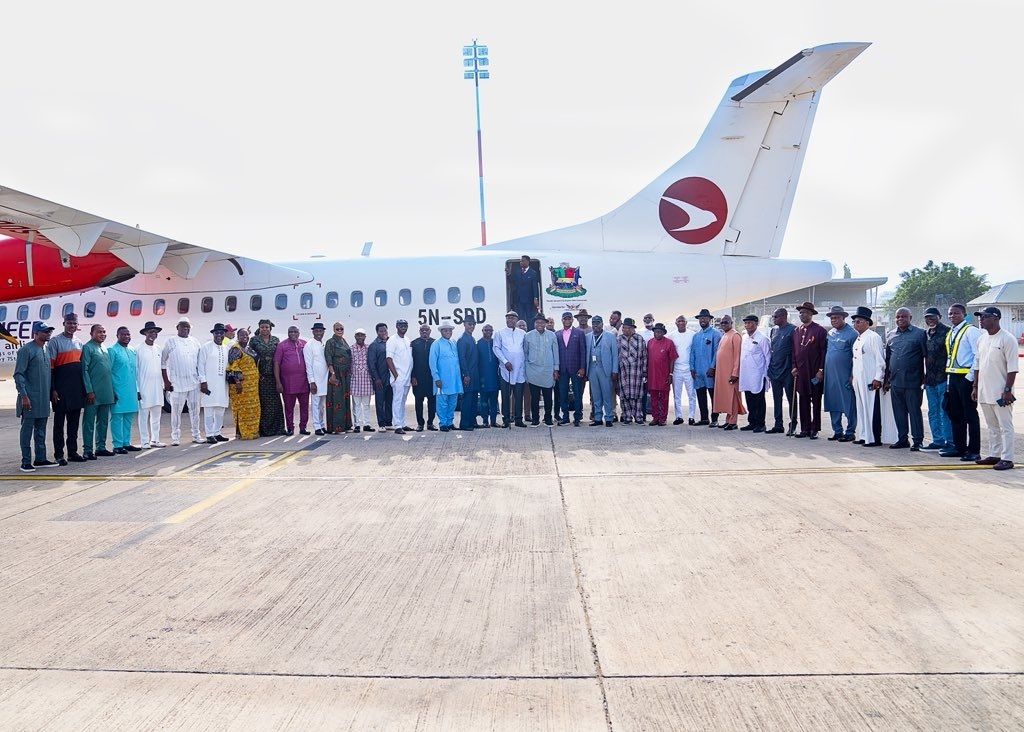
Omon-Julius Onabu in Asaba
The Asaba people of Delta State have said the unveiling last week in London of a film documentary on the Asaba Massacre has sent a firm and unambiguous message to the global community on the monumental injustice of the Nigerian state regarding the shocking massacre of hundreds of Asaba people by federal troops on October 7, 1967 during the Nigerian Civil War.
According to Chief Chuck Nduka-Eze, the Isama Ajie of Asaba, and executive producer of the film, special documentary on the Asaba massacre was formally released on Sunday, 26th October in London, in furtherance of a pledge by the peace-loving people of Asaba to counter the disturbing silence of the Nigerian government on the issue.
Nduka-Eze, a legal luminary who was the official convener of recent 58th anniversary celebration of the Massacre, told THISDAY in Asaba that the epochal event was in line with the people’s drive for justice in respect of the cold-blooded killing of the innocent citizens.
He said it was also to bring on the global space great lessons that could inspire the international peace-process in the Middle East and other areas of inter-ethnic and interracial crises in the world.
The response of the Asaba people to the 1967 massacre has been stoic and reflective rather than bitter and confrontational, Nduka-Eze noted, saying the international community stood to learn a lot from the Asaba post-massacre experience.
Addressing thousands of Asaba sons and daughters at the 58th anniversary of the infamous Asaba Massacre, on 7th October, the Asagba of Asaba, Obi Prof. Epiphany Azinge, indicated they would leave no stone unturned until the desired justice for the victims of the meaningless bloodletting was served.
On behalf of his people, he said that a formal apology from the federal government, and a federal university established in Asaba was the least the Tinubu administration could do in that regard.
The revered monarch said, “We must have a fitting memorial for these martyrs. We have told the President that we deserve and need an apology from the Nigerian government; and, we need a federal university established here in Asaba in their memory.”
While paying glowing tribute to the resilience and commitment to peace by the Asaba people, Obi Prof. Azinge emphasised that the people of Asaba would not rest on the oars until their demand for justice was met.
“We are prepared to take this matter wherever necessary. If Rwanda can come out of the ashes stronger, Asaba has already risen from the ashes. From the going down of the sun till morning, we will always remember them.”
Buttressing the statement of the traditional Nduka-Eze, disclosed that a recently finished film documentary on the October 1967 Asaba Massacre would premiere in London, the United Kingdom to underscore the determination to make post-Asaba Massacre a lesson for the whole world.
Chief Chuck Nduka-Eze, whose biological mother was one of the victims of the Asaba Massacre for daring to tell the soldiers to halt the abominable killing of unarmed citizens, harped on the need to draw global attention to another October 7, 1967, that occurred more than 55 years before the Hamas sudden attack on Israel in Gaza last year jolted the world to the persistence of ethnic intolerance in the world.
The annual remembrance for the Asaba Massacre victims would subsequently be part of the Asaba official cultural calendar, he announced.
Nduka-Eze, who described the 2025 elaborate memorial event as a historic and necessary act of honour, gave a vivid picture of the Day, going forward: “From today henceforth, Asaba will observe a one-minute silence every October 7 at 12 noon to honour our people who were killed in the Asaba massacre. A 21-gun salute will mark the occasion as a symbol of our collective respect.
“We have been speaking about the massacre to raise awareness; and, it is now time to institutionalise this in our city’s calendar.
“When we met with the President, we raised all our concerns. Although, he was silent on the Asaba Massacre, it does not mean he is unaware. We do not remember it with anger but with reflection because it is what the living owes the dead.”
According to him, regarding to the massacre with sober reflection rather than with anger and vengeful bitterness was the way to go, hence the Middle East and the world at large have a huge lesson to learn from Asaba people, who have chosen to stoically weather the storm and make remarkable progress after the darkest moment in their history.
Dignitaries who attended the epochal event at the African Centre, London, include the Asagba of Asaba, Obi Prof Epiphany Azinge (SAN); Chief Chuck Nduka-Eze, the Isama Ajie of Asaba who is the Executive Producer of the film documentary; Prof. Elizabeth Bird, author of the Book on the 1967 Asaba Massacre; Dr Charles Adams, Dean of Humanities at the South Florida University, Tampa, which funded research for the book; Chief Nwanze Oduah (Odogwu Ahaba); Ogbueshi Chike Ogeah, Ogbuefi Emmanuel Diali, Mrs. Nkiru Ofili.
Others are Chief (Prof) Victor Izegbu – The Ojiako of Asaba, Prof Oba Nsugbe KC – Chairman of the Africa Centre and chief host of the event, Ms Rajka Vlahovic of Eurojust; Ms Ndidi Njoku; Dr Ify Uraiah, Chief Anthony Mordi – Ezoti of Asaba; Chief Felix Nwokolo – Akudo of Asaba and Chief of Staff to his Royal Majesty; Hon Ngozi Okolie; Member House of Representatives for Aniocha-Oshimili Costituency.
Still others included Chief Mrs. Adaora Giwa-Amu; Chief Oburota, the Eziokwu Bundu of Asaba; Ogbueshi Ken Odogwu; Dr Ify Okocha; Chief Ify Azinge – Ugegbe of Asaba; Ogbueshi Udo Chukwurah; Ogbueshi Ngozi Okotcha -Ugbade; Mrs Celestina Isama; Mr Robert Aghadiuno; Mr Stephen Kola-Balogun; Ogbueshi George Ofili; Ogbueshi Richie Omo.


